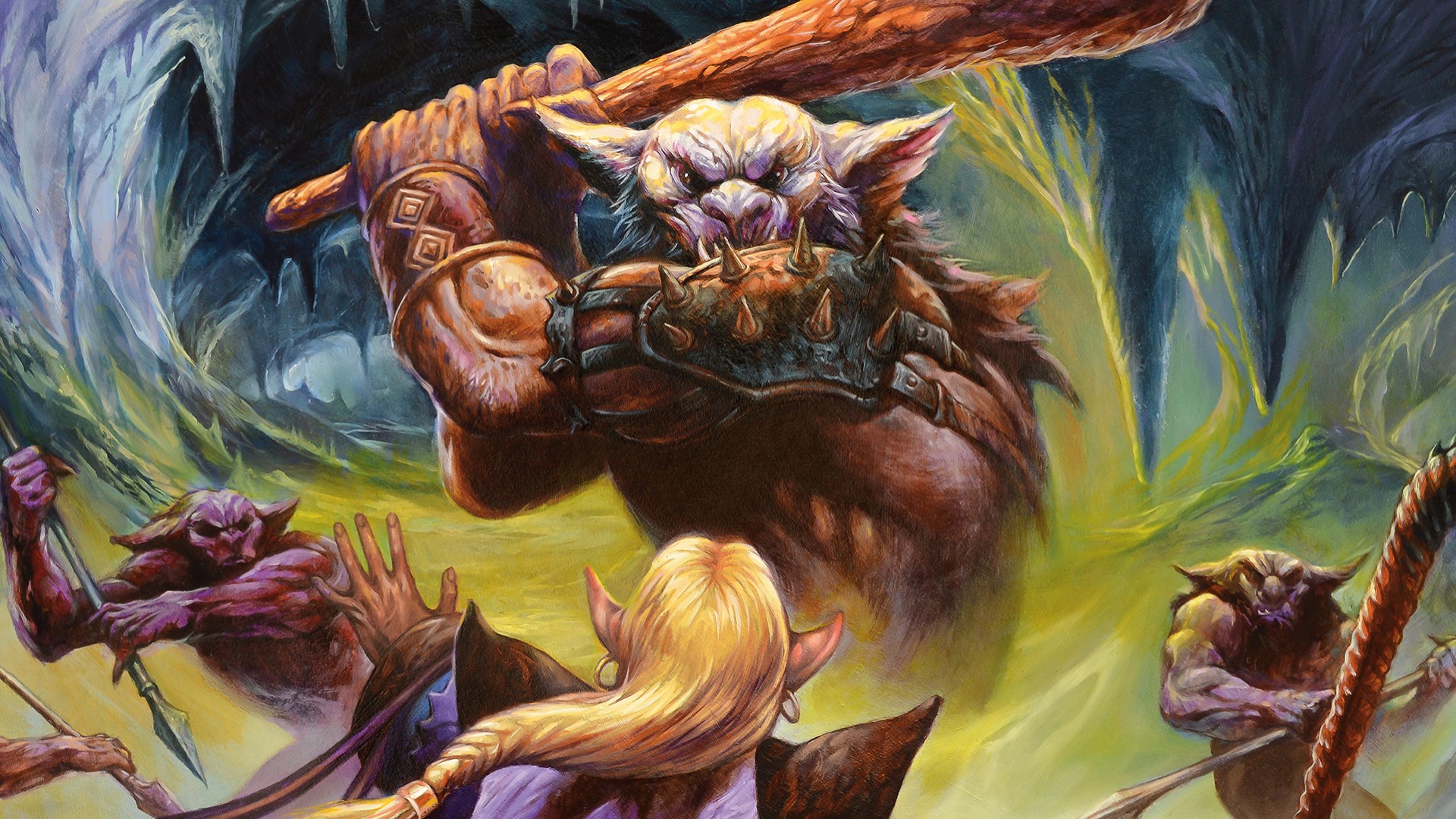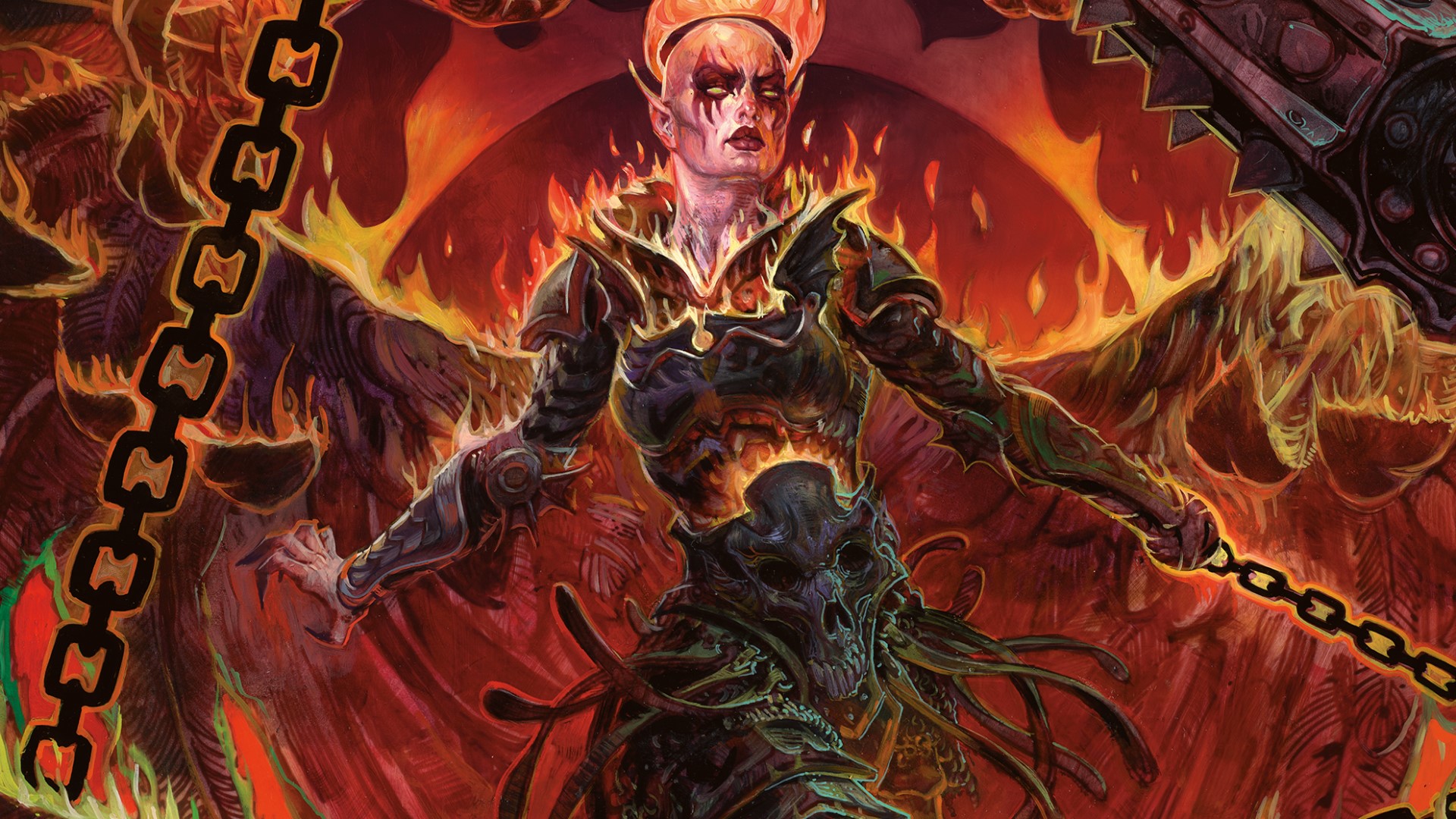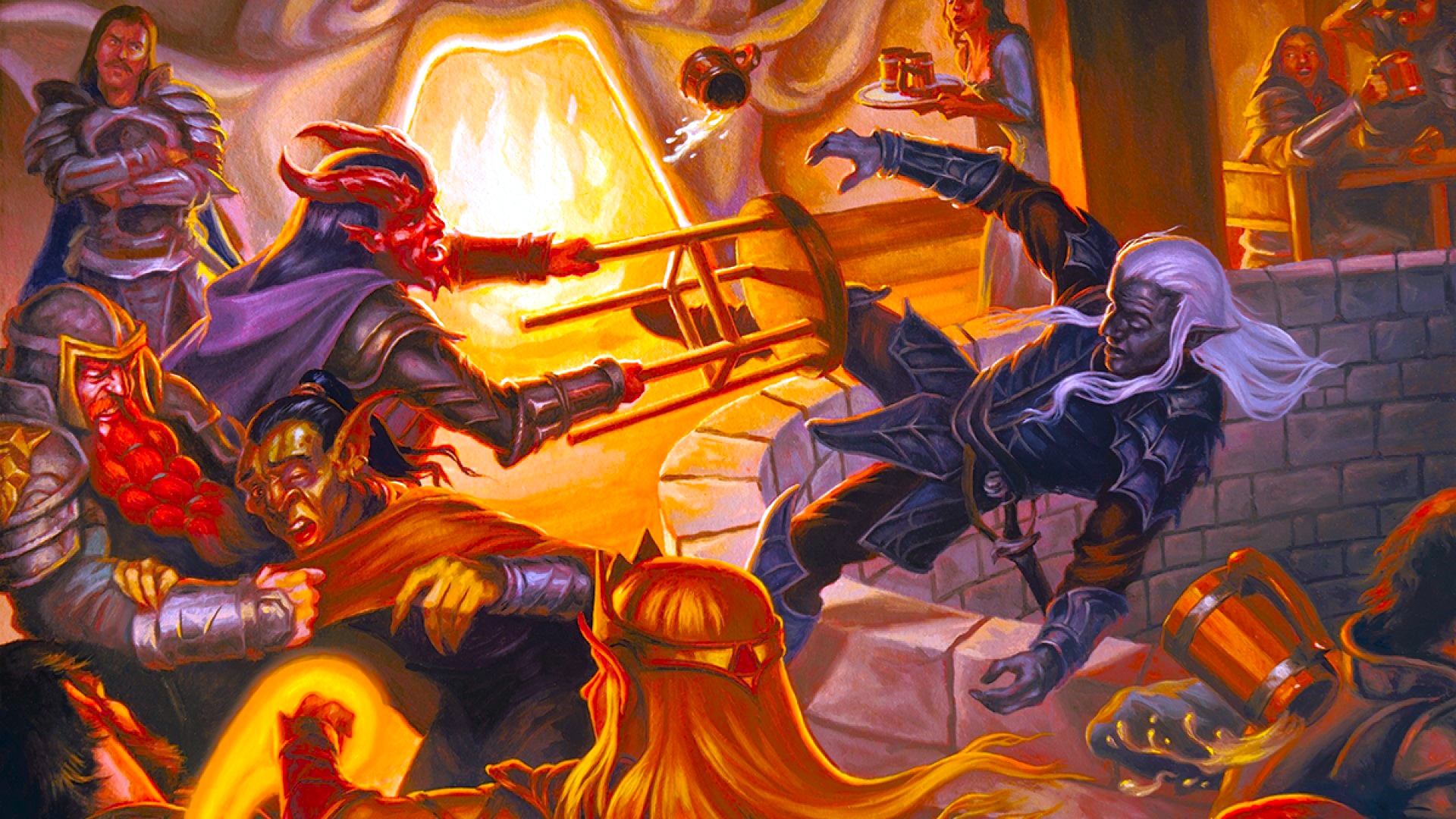The beginning of my most recent tabletop RPG campaign began with a large X drawn on a piece of paper. The Game Master explained that, if any of the subjects we encountered while roleplaying were ‘too much’, we could tap the X and immediately pause events. The upsetting subject could be bypassed completely, or players could take a break and re-evaluate how to proceed. We were playing a horror RPG, but the GM wanted to make sure no one was pushed beyond their limits.
This X card is one of many tools of consent that’s entered the tabletop gaming space in recent years. Many games of D&D now start with a ‘session zero’, where players can freely discuss the topics they’d rather avoid in-game, and ‘lines and veils’ tell Dungeon Masters whether a boundary can be pushed or not. The aim here is to make tabletop roleplaying as safe as it is enjoyable.
While increasingly used, these tools aren’t necessarily widespread. For every game with a session zero, there’s another where in-universe sexism is presumed rather than discussed. Debate over whether safety compromises spontaneity still occurs. The language of consent remains fresh for tabletop gamers, and we’re still figuring out how to speak it as one cohesive unit.
For those who want to further the discussion of consent in roleplay, however, there is another community that can offer experienced advice. Enter our fellow Dungeon Masters from the other side of the roleplaying fence – the BDSM and kink enthusiasts. They’re also very into dungeons but typically are a little less passionate about dragons.
Jokes aside, though – kinky communities have an entire vocabulary dedicated to consent. TTRPG-ers have already taken several leaves out of their books, but kink has even more insight to offer. I spent time talking about consent with fans of D&D and kink to further understand what more tabletop RPGs can learn.
The Cambridge dictionary defines consent as “permission or agreement”. In the context of both kinds of roleplay, however, the word seems to have a much broader meaning.
“To me, it means being honest and respectful and vulnerable with each other in order to have a great shared experience where everyone feels safe and has an amazing time”, says Shanna Germain, writer, game designer, and co-owner of TTRPG publisher Monte Cook Games. “There are so many places in our lives where no one asks our consent for things, and this is one place where it’s so easy to extend our hearts out and say ‘What do you need? What do you want? What’s not okay for you?’”
“It’s so easy and so meaningful”, she adds. “Even if you don’t get it 100% perfect (and no one does – we’re human), it’s the heartfelt, empathetic conversation that matters.”
There are a variety of tools used by BDSM and kink communities to discuss and enforce consent. Alexander Baguley, a sex educator and author of the D&D supplement ‘Kinky Subclasses, a Gay Supplement‘, explains one of his preferred tools for consent is the acronym RACK – which stands for ‘Risk Aware Consensual Kink’. “It’s awareness and being in a state of mind where you can make decisions for yourself”, he says.
When discussing tools for consent, TTRPG social media content creator Harli Kane describes a quiz-style checklist found online to kickstart conversations about likes and dislikes. She also emphasises the importance of plain-old conversation when it comes to understanding consent in the world of kink. “Consent doesn’t have to be a super complex thing”, they tell Wargamer, “just ask.”
“Consent is a topic of extensive discussion in kink,” says audio transcriber Adelaide Gardner. “Any safe space has rigorous protocols, even occasionally including verification for its members.” They add that, while most discussions around consent in kink scenes are informal, it’s not unusual to fill out forms with explicit ‘yes’s and ‘no’s.
“No matter the process, consent is the absolute number one rule in kink, and it can be revoked at any time”, Gardner says. “An experienced kinkster also doesn’t take revoking of consent, or accidentally breaking boundaries, as something morally wrong. Mistakes happen and individual comfortability can change, we just debrief and make sure all parties are taken care of.”
Gardner explains regular check-ins on participants’ wellbeing and code words are also a regular occurrence. Additionally, code words aren’t just used to stop a kink ‘scene’. “Code words are often used as an enthusiastic consent”, she says.
This is an aspect of consent Gardner believes is commonly misunderstood – both in kink and tabletop RPG groups. “Consent can be and is as simple as talking about what type of game you would like to play. Do you want more or less combat, or an even mix? You’re there to all have an enjoyable experience with each other, both game leaders and players, and flipping the concept from being something negative to creating the perfect experience for everyone at the table I think is really important.”
Many of these tools may sound familiar, even if you’re a tabletop roleplayer with no kink experience. This is because the consent tools of kink have an increasing presence in the world of non-sexy roleplay. “When you’re looking for structures for consent, the kink community is the best place to look, because no one else seems to build them”, says Baguley. “And the only places outside of that community that have built them did so because they’ve been looking at the kink community.”
A great example of how these tools translate to tabletop roleplaying is a free PDF created by Monte Cook Games’ Shanna Germain and Sean Reynolds. ‘Consent in Gaming’ does what it says on the tin, providing an entire toolbox for maintaining player consent.
It suggests using ‘no words’ and ‘go words’, which mirror Gardner’s code words; it recommends having an ‘X card’ in the middle of your table so consent can be revoked wordlessly at any time; it provides tips for recovering from consent mistakes and providing aftercare to deal with emotional exhaustion; and it has a checklist offering players the chance to share how comfortable they are with everything from torture to bugs. All of these tools have been tried and tested by kink communities, and they hold a lot of value for tabletop gamers too.
“I think right now consent is more important than it’s ever been”, Germain says. “So many people are coming to gaming who’ve never been here before, and they all come from different backgrounds and areas and cultures and life experiences – and that means everyone has completely different expectations about what is and isn’t okay, what’s taboo or isn’t, what’s funny or isn’t.”
“If you don’t talk about things ahead of time, it can be really easy to make someone feel less than, othered, or unsafe, even if it’s not intentional”, she adds. “Taking even just a few minutes to have a conversation and set up shared expectations can mean so much to someone who might be feeling vulnerable. It starts to build trust and a shared language, which can only lead to better games for everyone at the table.”
“Even in the most silly, sweet, family-friendly game going, all the fun involves conflict”, Kane tells Wargamer. “But we don’t all have similar comfort levels. It’s not fun to be traumatised by a game – if something is triggering, it’s just not fun.” “I would love for the word consent to be used more often”, Kane says. “I feel like people don’t use the term, even when that’s what’s happening.”
There are a growing number of consent tools for the tabletop gaming community. Many additional resources are listed in the Consent in Gaming sourcebook, and Germain says more are bound to have been developed since her work on the 2019 publication. However, making room for consent in tabletop gaming is seemingly still met with some resistance.
Germain tells Wargamer that, when Consent in Gaming was originally released, some of its critics were “vitriolic in their hatred”. “They were really loud and aggressive in their reactions – there were people making videos about how awful the supplement was, telling us how we must be the worst people to game with, about how we were breaking the game industry”, she says.
“[Consent in tabletop gaming] tends to be very polarising, I think, for a lot of different reasons”, she tells Wargamer. “But it seems like more people are realising why it’s important to at least have that conversation around gaming, and that’s certainly a huge change in the last ten years or so.”
“The issue of consent is having such an interesting (and often horrible) moment in the world at large right now”, adds Germain. “You can see it in all kinds of situations, from gun violence to abortion rights to gender issues. People assume consent for so many things, and they don’t want to ask – because if you ask, someone might say no and so many people’s egos can’t handle that.”
“The microcosm of gaming echoes that, I think. People who care about consent are willing to go the extra mile – use the tools, have the conversations, respect the boundaries – and those who don’t, eschew all of that, often aggressively so, to get what they want.”








